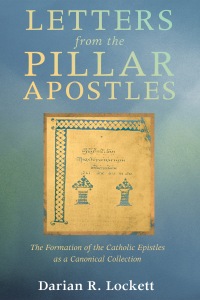2018.07.10 | Christopher Skinner and Sherri Brown (eds). Johannine Ethics: The Moral World of the Gospel and Epistles of John. Minneapolis, MN: Fortress Press, 2017. 319 pp.
Reviewed by Matt N. Williams, Durham University.
This volume sees Fortress Press enter the debate surrounding Johannine ethics, a debate that has been increasingly active since the 2012 German publication of Rethinking the Ethics of John. As the editors, Christopher Skinner and Sherri Brown, make clear in their introduction and conclusion, the whole question of John’s ethics is turning out to be far more fertile ground for research than traditionally assumed. This corresponds to Alan Culpepper’s analysis of the situation two decades ago, which perceived this as a general shift of focus in John scholarship. The early preoccupation with theological matters was overtaken by historical matters and now ethical ones in response to society-wide moral concerns regarding pluralism and ‘the Jews’ especially. Read the rest of this entry »

